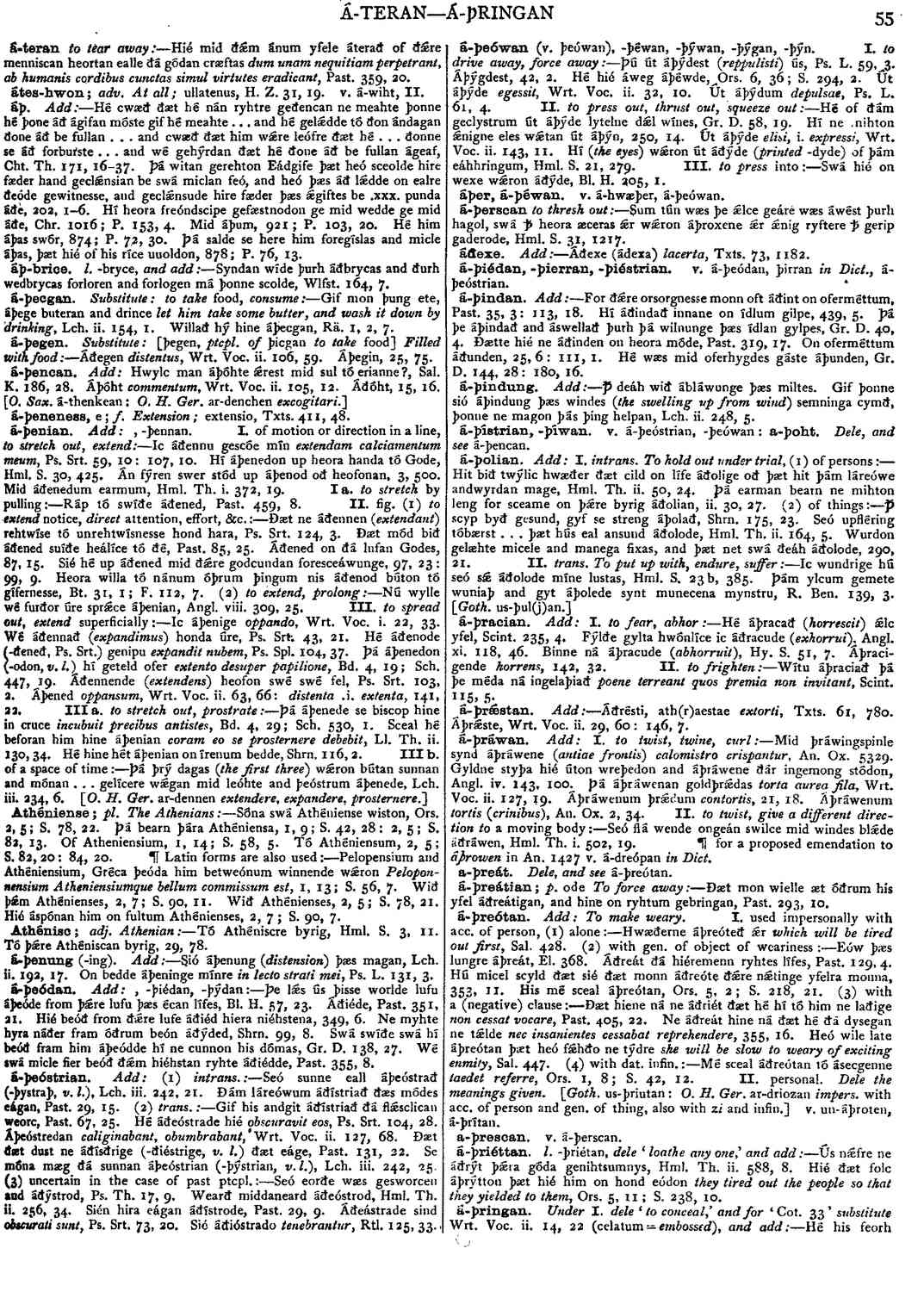á-þreótan
-
Hwæðerne áþreóteð ǽr
which will be tired out first,
- Sal. 428.
-
Eów þæs lungre áþreát,
- El. 368.
-
Áðreát ðá hiéremenn ryhtes lífes,
- Past. 129, 4.
-
Hú micel scyld ðæt sié ðæt monn áðreóte ðǽre nǽtinge yfelra monna,
- 353, II.
-
His mé sceal áþreótan,
- Ors. 5, 2 ;
- S. 218, 21.
-
Ðæt hiene ná ne áðriét ðæt hé hí tó him ne laðige
non cessat vocare,
- Past. 405, 22.
-
Ne áðreát hine ná ðæt hé ðá dysegan ne tǽlde
nec insanientes cessabat reprehendere,
- 355, 16.
-
Heó wile late áþreótan þæt heó fǽhðo ne týdre
she will be slow to weary of exciting enmity,
- Sal. 447.
-
Mé sceal áðreótan tó ásecgenne
taedet referre,
- Ors. 1, 8 ;
- S. 42, 12.
Bosworth, Joseph. “á-þreótan.” In An Anglo-Saxon Dictionary Online, edited by Thomas Northcote Toller, Christ Sean, and Ondřej Tichy. Prague: Faculty of Arts, Charles University, 2014. https://bosworthtoller.com/39211.
Checked: 1